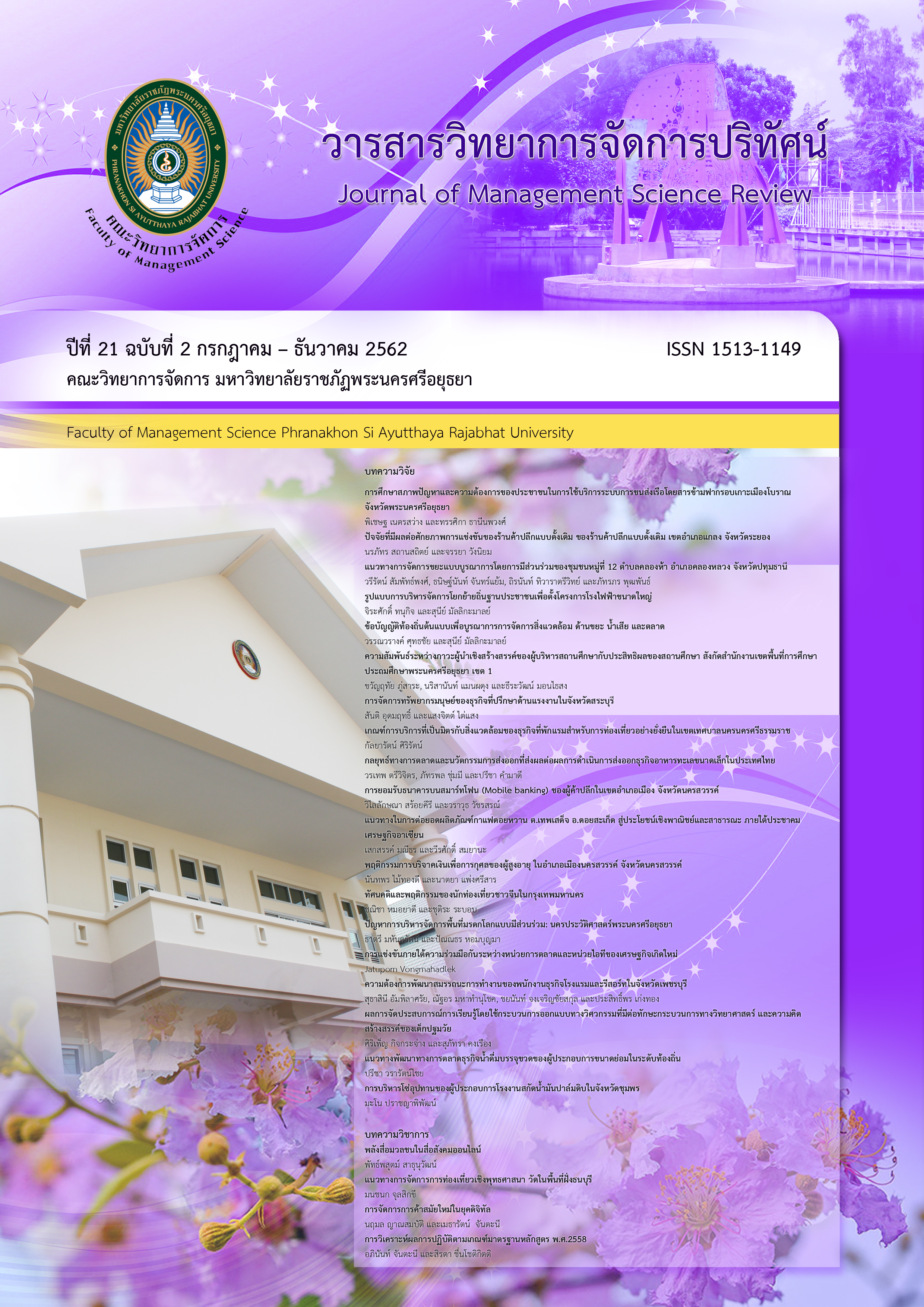Charitable Donation Behavior of the Elderly in Muang District, Nakhon Sawan
Abstract
The three purposes of this study were to investigate (1) demographic, socio-economic and intrinsic motivating characteristics which included generosity, financial security and religiosity (2) donation behavior of elderly donors for temples and charities (3) the relation between those characteristics and donation behaviors of the elderly donors, precisely, the frequency of monetary donation behaviors with no regard for amount donated. The area scope of this research was Muang Nakhon Sawan. The samples are chosen by convenience sampling, consisting of 390 elderly donors. The methodologies were descriptive statistics, chi-square test and binary logistic regression to analyze the relation between those characteristics of the elderly donors and regular monetary donation. The findings revealed that most of the elder donors were female, of age 60-64 with self-reported religiosity and financial security at moderate level while that of generosity claimed at high level, decided to donate mostly to Buddhist temples and secondly to educational charity. With an univariate analysis of chi-square, there was a significant relationship between regular donation behavior and following factors: marital status, education level, occupation before 60 years old, family members of household and level of religiosity. In addition, three main motivations behind charitable giving behavior of elderly were influence of commemorative dates, happiness through giving and religious motivation.
According to the results of binary logistic regression analysis, the level of religiosity, occupation before 60 years old and education level were found to have a significant effect on regular monetary donation of the elderly. Furthermore, the elderly with self-reported religiosity at moderate and high level tend to be regular donors while the elderly with primary educational level or lower are more likely to donate money regularly.





